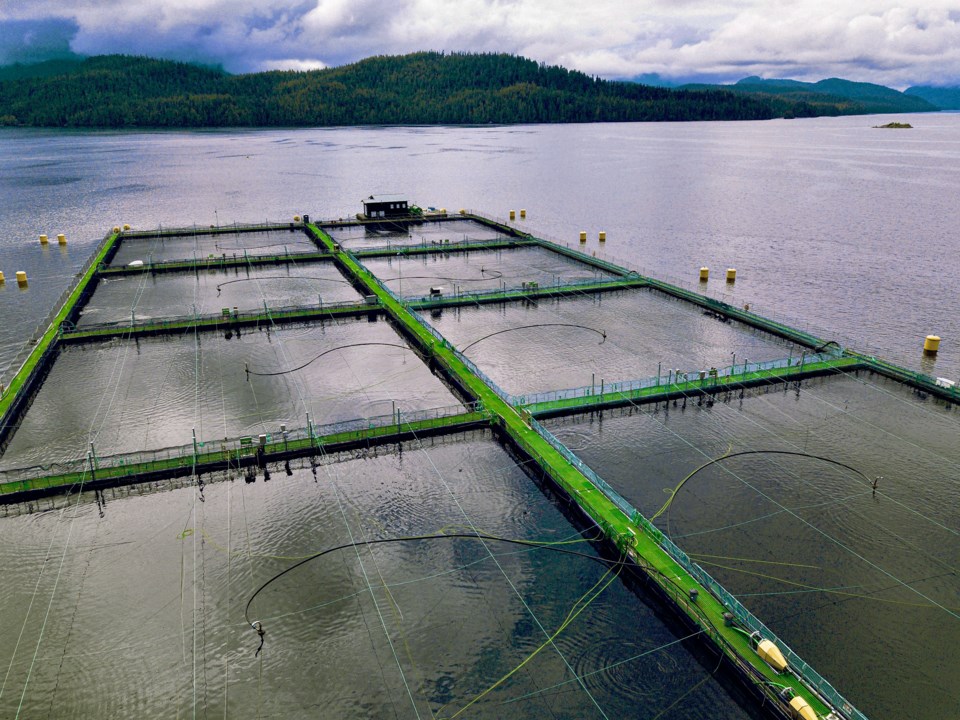B.C.’s salmon farming sector—a cornerstone of the province’s economy and an emblem of innovation—is under siege. For decades, it has supported communities, driven economic activity and championed sustainable practices. The sector represents 3.2 per cent of all global farm-raised salmon production, making it the fifth-largest producer globally. Yet, it now faces existential threats from regulatory uncertainty and environmental debates.
Salmon farming began in B.C. in the 1970s, booming through the 1980s and solidifying its place as a vital sector by the 1990s. By the 2010s, it was responsible for a significant contribution to GDP. But along with its rapid growth came mounting concerns about its environmental impact. Critics argued that marine net-pen farms threatened wild salmon populations, especially in ecologically sensitive areas like the Discovery Islands. These concerns culminated in legal and policy battles, including a 2009 case against the province that ultimately shifted regulatory authority to the federal government under Fisheries and Oceans Canada.
A significant turning point came in 2020 when the Canadian Science Advisory Secretariat fulfilled the Cohen Commission recommendations and concluded that salmon farms pose “minimal risk” to wild Pacific salmon. Following this, the federal government still decided not to reissue salmon farm licences in the Discovery Islands. It ultimately announced in June 2024 the decision to fully phase out current marine net-pen salmon farms in B.C. and transition to closed containment.
A November 2024 report paints a grim picture. The transition threatens to slash $1.17 billion in annual economic activity and $435 million in GDP, while eliminating over 4,500 well-paid jobs. These losses will ripple through B.C.’s economy, affecting over 1,400 vendors and further reducing farm-raised salmon production by 50,000 tonnes annually.
The sector’s decline is nothing short of devastating for communities that depend on salmon farming.
Critics of salmon farming often overlook its strides in environmental stewardship. B.C.’s salmon farms adhere to some of the highest global standards, with third-party certifications ensuring accountability. The sector can boast about innovations in clean technology, high feed conversion efficiencies, low freshwater use and low greenhouse gas footprint, making the product one of the most sustainable protein sources. Still, the closure of salmon farms has cut production by 45 per cent in B.C. in the last six years and reduced investment, translating to significant economic and social losses while limiting access to a key food source.
Despite these challenges, the sector’s resilience is evident. Before the closures, B.C. salmon farmers invested over $500 million in new technologies to modernize operations and minimize environmental impacts. They now propose a roadmap for growth that aligns with protecting wild populations. The sector could generate $2.5 billion in economic output by 2030 and resulting in $930 million in GDP and 9,000 jobs paying $560 million in wages annually.
B.C. desperately needs this injection of economic activity and a shift in focus supporting growth and resilience in the sector. A challenging fiscal situation—running the largest operating deficit as a percent of GDP of any province. And looming threats of trade sanctions from the U.S. threatens over $200 million in fresh and chilled fish exports to California, B.C.’s No. 1 export to that state further disrupts economic stability.
Ottawa’s timeline for the transition to closed-containment systems by 2029 is unachievable and delays the investment needed for growth. B.C. should work to reverse the mandate while supporting alternative innovations to minimize interactions between farm-raised and wild salmon.
Dismantling this sector without robust alternatives risks unravelling B.C.’s coastal regions’ social and economic fabric. The stakes are too high to ignore.
Denise Mullen is the director of environment, sustainability and Indigenous relations at the Business Council of B.C.



